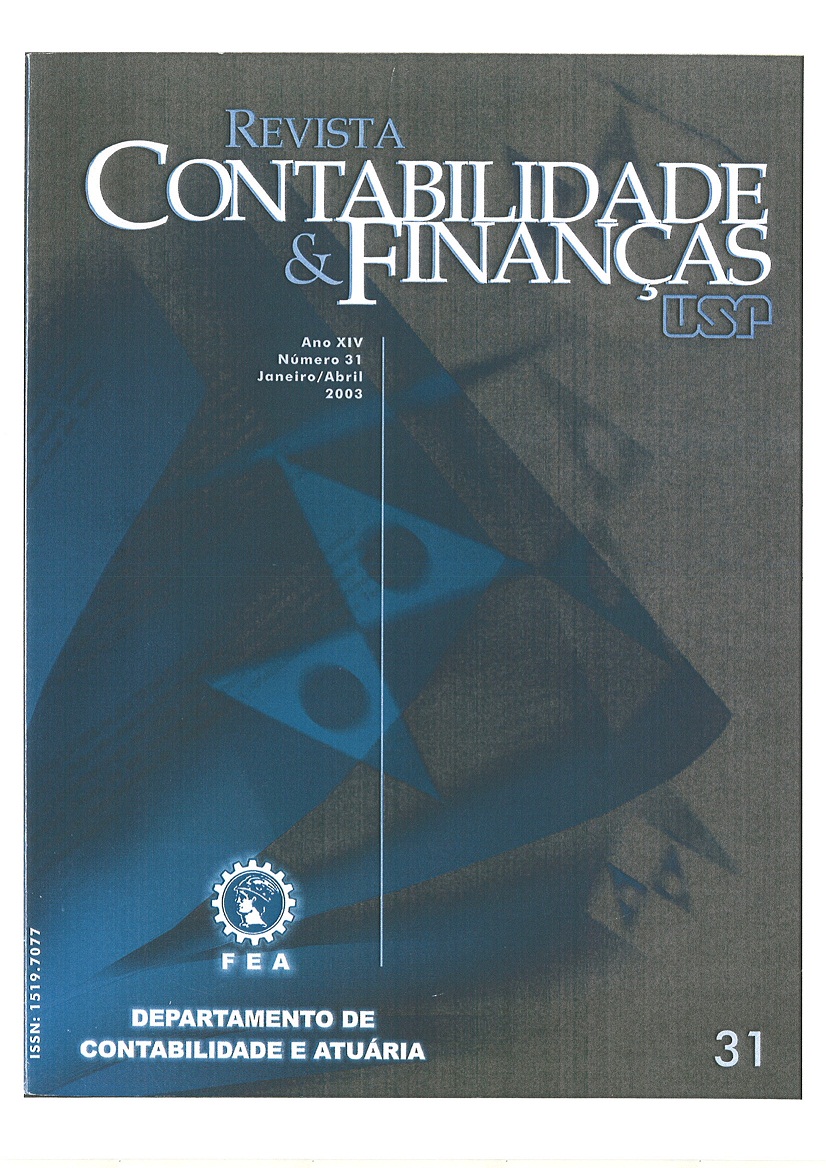Tratamento contábil do câmbio flutuante no Brasil: uma proposta frente à grande volatilidade 2001/2002
DOI:
https://doi.org/10.1590/S1519-70772003000100008Keywords:
financial statements, accounting treatment of exchange variance, treatment of exchange flotationAbstract
In 2001 and 2002, the existence of transitory elevations in the value of the dollar as opposed to the real, which were reverted later on, caused the creation of distorted Financial Statements for Brazilian companies that owned assets or liabilities with an exchange variance clause, generating a high level of volatility in the presented results. This study presents a proposal for the adoption of a concept called "Fair Dollar", calculated on an economic base by means of the Exchange Parity Theory, using the calculation base that was developed by the World Bank.This treatment would allow for the accounting treatment of monetary variations in long-term assets and liabilities with an exchange variance clause in a linear way, avoiding the determination of temporary gains and losses. The parameter for equity valuation does not consider the current dollar rate as the only reference base, but a value linked up with the amount that will be used in perspective, at the realization date of the equity elements. The methodology for calculating and obtaining the values is demonstrated and exemplified. Various alternatives are approached for the disclosure and accounting treatment of the difference between the actual value of the dollar at the date of the Balance Sheet and the so-called "Fair Dollar". This article aims to broaden the debate about the effects of the adoption of the floating exchange rate for accounting, suggesting an alternative for change. This alternative must be evaluated carefully with respect to the practical viability of change, since it will not only signify an increase in the quality of Financial Statements but also a change in the current basic conceptual structure of accounting.Downloads
Downloads
Published
Issue
Section
License
The content of the article(s) published in the RC&F are of the entire liability of the authors, including with regard to the truth, updating and accuracy of data and information. The authors shall assign the rights in advance to the Department of Accounts and Actuarial Sciences of the FEA/USP, which shall permit the publication of extracts or of the whole, with prior permission, provided that the source is cited (Creative Commons – CCBY).
RC&F shall not charge a fee for the submission of articles. The submission of articles to RC&F shall imply that the author(s) authorizes/authorize its publication without the payment of author’s rights.
The submission of articles shall authorize the RC&F to adjust the text of the article(s) to their publication formats and if necessary, to make spelling, grammar and regulatory changes.






